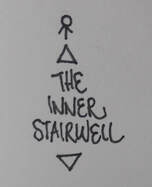It was through the shaman's focus that he was able to comprehend what was in front of him the whole time. Then, it became the shaman's job to describe the boats to his people, where the shaman was the only one who could see the occurrences. It was only upon trusting the shaman that his people began to witness the events as well. Hence, the segment may show that we may be oblivious to what is in front of us if we don't have the appropriate comprehension.  The pre-colonial segment was not easy to digest. You would think that if there is something in front of you, you would still see it even if you lacked the requisite comprehension. I believe there is currently a group of indigenous people in the Indian Ocean who have remained secluded from the rest of the world, where you would think they would still be able to see airplanes in the sky. Infants are another example, where we were all at one point infants who held limited understanding of our world, or even by our surrounding environment. Therefore, based on the above assumption, an infant would probably be blind to much of their surrounding environment. When I was in school, I was living with relatives who had an infant child who took great interest with my laptop since she would see me typing away all the time. She had no comprehension of what I was doing or what the laptop was capable of doing, but yet, she could still see the laptop. However, this could be due to her trust in me and my association with the laptop. M. Esther Harding, in her book the i and the not i, describes biologists in their attempt to discover the nature of consciousness in animals. It appears that "each creature sees only what concerns himself; for everything else he seems to be blind". Citing to biologist Jakob von Uexkull discovery that "a living organism responds only to stimuli that produce in it either an efferent or an afferent impulse; that is, it responds to stimuli that produce in it either an impulse to action or a sense impression". Basically, living creatures only care about stimuli associated with its needs and capacities. Everything else, the living creature will be indifferent, deaf, blind, and unresponsive.
Hence, given that humans are just animals, although slightly higher in the evolutionary scale of consciousnesses (at least we think; we'll exclude dolphins for this argument), we most likely still fall under the limited comprehension associated with animals as described above. Suddenly, the segment from What The Bleep may make more sense, where it becomes plausible that a group of individuals who had no comprehension or care of traveling by boat would fail to see a ship coming ashore, as it would provide no personal stimuli to such viewing individuals. Now, let's take this one step further. Now that we have a foundation and understanding that due to our own selfishness and ability to only comprehend what concerns oneself, what else is out there that our limited comprehension cannot grasp as of yet? For our awareness of the world around us is extraordinarily limited. We are all simply unconscious to an unbelievable degree. M. Esther Harding, the i and the not i Consider that you can see less than 1% of the electromagnetic spectrum and hear less than 1% of the acoustic spectrum. As you read this, you are traveling at 220 km/sec across the galaxy. 90% of the cells in your body carry their own microbial DNA and are not “you.” The atoms in your body are 99.9999999999999999% empty space and none of them are the ones you were born with, but they all originated in the belly of a star. Human beings have 46 chromosomes, 2 less than the common potato. The existence of the rainbow depends on the conical photoreceptors in your eyes; to animals without cones, the rainbow does not exist. So you don’t just look at a rainbow, you create it. This is pretty amazing, especially considering that all the beautiful colors you see represent less than 1% of the electromagnetic spectrum. Sergio Toporek, NASA
0 Comments
Your comment will be posted after it is approved.
Leave a Reply. |
AuthorOverly educated and continuously exploring and revealing more behind the veil. "It cannot be too highly emphasized that the mystic swims in the same waters in which the psychotic drowns."
-James Wasserman, The Mystery Traditions Archives
August 2019
Categories
All
|




 RSS Feed
RSS Feed